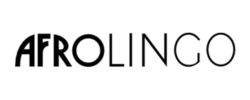Business localization is a smart tactic to expand your business, especially in Africa. But like anything worthwhile, it’s not without its challenges. Everyone talks about how crucial localization is, but few openly discuss the real challenges it presents.
In this blog, we’re cutting through the hype to bring you the five most common challenges you might face throughout your localization journey in Africa, giving you the clarity and confidence to navigate the complex landscape and achieve sustainable growth.
Speaking the Language: Language Diversity Can Be a Roller Coaster
One of the biggest misconceptions global businesses make is treating Africa as a single entity, much like they might approach Europe. But while the EU may operate under some shared economic policies and cross-border frameworks, Africa is vastly different.
It’s not a monolith. Africa is not one culture, one market, or one audience. It’s a continent of 54 countries, thousands of ethnic groups, and over 2,000 languages and dialects spoken across the continent.
This linguistic richness is a huge asset, but it also creates a complex challenge for businesses looking to localize effectively. Language profoundly impacts brand messaging and user experience.
→ 76% of respondents will choose the one with information in their language.
→ The number jumps to 89% of those with no English-language competence.
→ 73% of global consumers prefer product reviews in their native language when shopping online.
→ 40% of shoppers said they would not purchase from a website in another language.
Selecting the right languages for your localization efforts is no small feat.
And if you are thinking English, well, although English is widely spoken on the continent, being the official language in 27 African countries, proficiency levels vary widely, which adds another critical dimension to your localization strategy.
According to the 2024 EF English Proficiency Index, South Africa ranks 11th globally, with a High proficiency score of 594. Kenya follows closely, and Nigeria isn’t far behind at 557, which is still classified as High.
These countries are prime locations for localized content in English. They tend to adopt English for business, education, and online engagement, making it a viable starting point for your business localization strategy.
Several other markets show Moderate proficiency, indicating a willingness to engage in English but not always comfortably—Ghana (534), Uganda (518), and Morocco (479) fall into this bracket. Meanwhile, other regions—particularly parts of Central and Francophone Africa—have Low to Very Low proficiency scores, where relying solely on English in these markets risks missing large segments of the population.
PRO LOCALIZATION TIP
Without careful language selection and adaptation, businesses risk alienating key customer segments or diluting their brand value.
- Prioritize languages based on thorough market research and local relevance, not just population size. Engage native speakers and linguistic experts who understand the nuances of dialects and cultural contexts. Start small with core markets, then expand your language portfolio as you deepen your presence.
- In High English proficiency markets, you may want to go ahead with English-first content, just keep localization culturally aligned.
- Invest in localization and incorporate fully translated content in moderate and low proficiency markets.
Cultural Nuances and Regional Norms: The Core of Localization Challenges
Africa operates on a vastly fragmented cultural spectrum. There’s no unifying cultural identity. Instead, each region, country, and community functions as a cultural entity of its own.
In Nigeria alone, you’ll find Yoruba, Hausa, and Igbo cultures, each with distinct norms, customs, and communication styles. In South Africa, there are 12 official languages and a multicultural society shaped by indigenous heritage, colonial history, and modern urban influences. North Africa leans heavily toward Arab and Berber cultures, while East Africa blends Swahili, tribal, and Indian influences.
The diversity is staggering and rich with opportunity, if approached with care.
Moreover, 88% of consumers say they strongly value authenticity. African consumers are increasingly savvy—they can spot inauthentic brands from a mile away. They want to feel seen and respected, not just spoken to in their language.
PRO LOCALIZATION TIP
Successful localization in Africa requires cultural fluency, not just linguistic accuracy. Brands must be willing to listen first and adapt thoughtfully. You can’t simply translate your content and expect resonance. You have to understand how people think, what they value, how they make decisions, and what builds or breaks trust in each cultural context.
Understanding an audience’s cultural needs is pivotal to establishing trust and communication and allowing for your business to grow. Having misconceptions about cultural nuances can reflect on your business and, hence, your audience, negatively.
Collaborate with regional cultural consultants, market researchers, and local teams who can provide on-the-ground insights and help craft messaging that truly resonates. Consider piloting campaigns in different regions to test cultural fit before scaling.
Regulations and Compliance Requirements Are No Joke
Doing business in Africa requires navigating a fragmented and rapidly evolving regulatory landscape. Africa’s regulatory environment is highly decentralized, with each country maintaining its own trade laws, advertising standards, data protection rules, content guidelines, and product labeling requirements.
For global businesses attempting localization at scale, this creates a complex legal web. What’s legally acceptable in Ghana might not be allowed in Ethiopia. A product claim that passes compliance in Kenya could face penalties in Algeria. One-size-fits-all localization simply doesn’t work in Africa when the legal stakes are this high.
Now, 33 of 54 African countries (61%) have data protection laws, often modeled after global frameworks but with local variations that catch even seasoned legal teams off guard.
So, now your localization teams are dealing with legal localization—ensuring that translations, UI content, product packaging, and ad creatives don’t just read well, but also comply with every applicable regulation.
PRO LOCALIZATION TIP
What you will need to do is build regulatory insight directly into your business localization workflows. Work with local consultants and localization experts to validate marketing materials, product descriptions, and digital assets before launch.
Consider a country-by-country compliance checklist as part of your go-to-market process, and don’t overlook the value of early-stage legal localization audits, especially when expanding into multiple jurisdictions at once.
Infrastructure and Technological Barriers Shouldn’t Be Ignored
Across the continent, mobile and digital connectivity are not just growing—they’re exploding. Africa, particularly sub-Saharan Africa, is now the fastest-growing mobile market in the world.
However, access to reliable internet, digital services, and logistics infrastructure is still highly uneven, which can complicate your localization efforts.
Internet penetration remains below 45% in many countries, and broadband speeds vary widely. Countries like South Africa, Kenya, and Nigeria boast growing connectivity, but others may lack reliable internet access, especially in rural areas. That affects how localized digital content is delivered and consumed.
A huge portion of the population might be unable to access content-heavy apps, websites, or services—unless they’re specifically designed for low-bandwidth environments.
PRO LOCALIZATION TIP
This digital fragmentation directly impacts how brands localize for African markets.
- Optimize digital assets for low-bandwidth environments, including fast-loading pages, compressed images, and mobile-first interfaces.
- Localized payment systems must support mobile money, which dominates in markets like Kenya, Nigeria, and Ghana, often more than traditional credit cards or PayPal.
- Customer support channels must be accessible across platforms like WhatsApp, not just sleek chatbots on high-speed web apps.
Business localization in Africa means planning for the full journey—from first click to final transaction. And that means adapting to how people actually connect, communicate, and pay.
The Man vs. Machine Translation Gap in African Languages
As businesses look to scale faster with AI and automation, machine translation (MT) is often a solid business solution. But when it comes to localizing for Africa, the reality is far more complex, making full automation a risky bet.
Despite rapid advancements in AI translation for major world languages, Africa remains one of the most underserved regions in the MT ecosystem.
For instance, out of its 2,000 languages, Google Translate supports only over 60 African languages.
Recent studies have shown low BLEU scores (a measure of translation accuracy) when African languages are run through standard MT engines. A 2023 study, in particular, revealed that ChatGPT has a blind spot not only for Niger-Congo languages but for African languages in general.
While languages like French, Spanish, or Mandarin enjoy robust MT support, African languages are low-resource, morphologically complex, and context-heavy.
- Data Scarcity: Most AI models rely on massive datasets to train accurate language outputs. But many African languages lack the digitized corpora necessary to support high-quality training.
- Structural Complexity: Languages like isiZulu or Amharic are agglutinative or tonal, meaning words change form based on context. MT engines often struggle to keep up with this.
- Context Matters: Machine translation frequently misses cultural nuance, idiomatic expressions, or context-specific meaning—all critical in African communication.
PRO LOCALIZATION TIP
AI and Machine translation may eventually catch up. But for now, your best bet for quality localization in Africa is people. Choose human translation and trust local experts who understand the languages and the lived realities of your audience.
If you must use machine translation for scale, always follow these steps:
- Assess AI-readiness of each African language in your target markets.
- Pair MT with native-speaking human translators for post-editing and quality review.
- For high-impact content (branding, legal, medical), rely entirely on human localization teams.
Do These Challenges Feel Overwhelming to You?
Expanding into Africa is full of opportunity—but only if you localize with insight, cultural intelligence, and strategic precision.
At Afrolingo, we’ve been helping global brands navigate Africa’s linguistic diversity, regulatory complexity, and digital realities for over a decade. Our native-speaking linguists, Africa-based teams, and deep market expertise ensure your message hits home, no matter the language, country, or cultural nuance.
Contact us today to localize smarter, faster, and authentically with Afrolingo.
FAQs
- What is the importance of business localization?
- It builds trust and connection with local audiences
- It enhances customer experience
- It boosts revenue and ensures global growth
- What is the localization strategy in business?
It is a coordinated plan for adapting companies’ products, services, content, and customer experiences to meet the cultural, linguistic, and functional expectations of specific target markets.
Localization strategies involve adjusting:
- Branding
- Messaging
- User interfaces
- Legal content
- Visuals
- product features
All these adjustments are made to ensure that your business feels native and relevant in each region.


